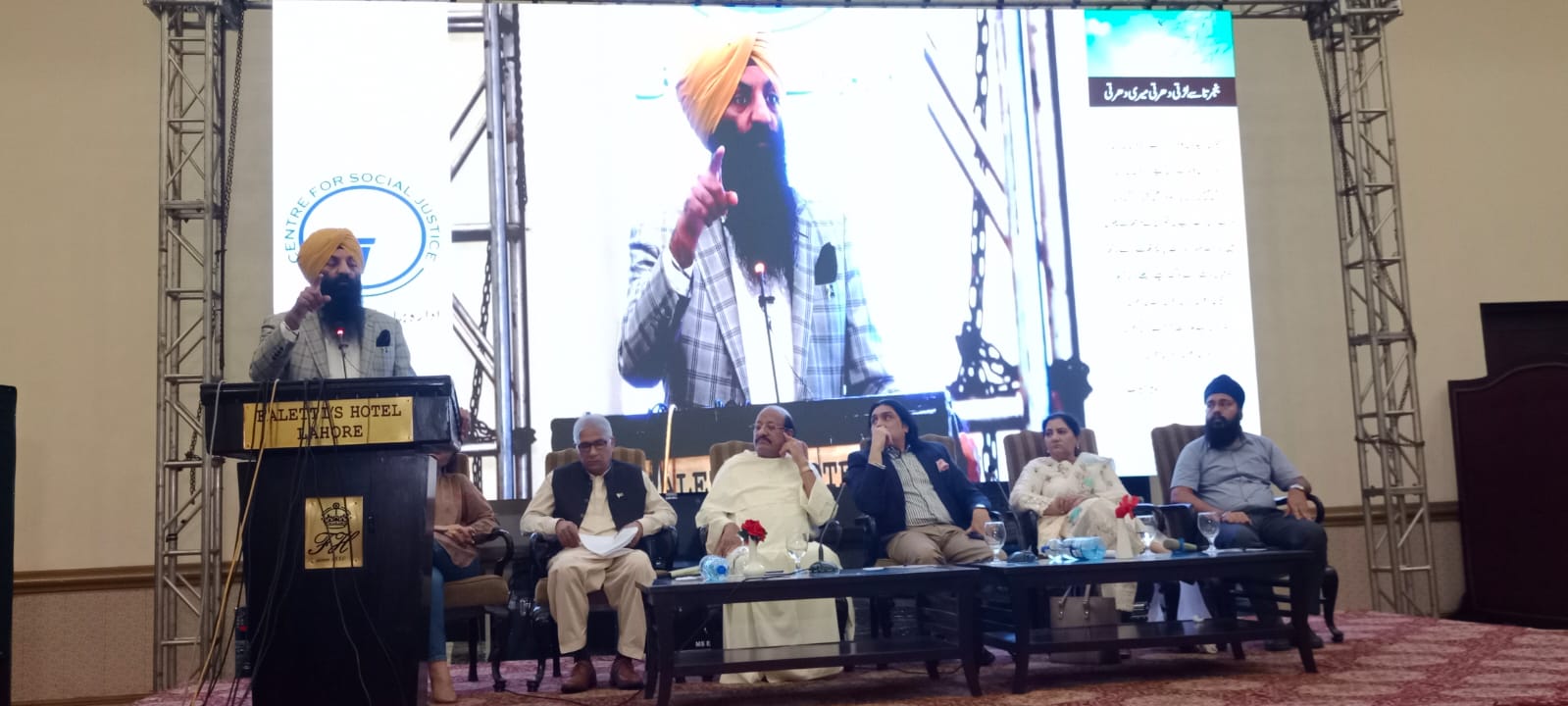News Desk
Lahore (August 8, 2024):
In line with the observance of National Minorities’ Day, the Centre for Social Justice (CSJ) hosted its 8th annual convention under the theme “How to Tackle Extremism in Pakistan.” The event gathered a diverse panel of speakers from various sectors, including political leaders, academics, and civil society representatives, to discuss the pressing issue of extremism and its pervasive impact on Pakistani society.
Peter Jacob, Executive Director of CSJ, opened the discussion by expressing deep concern over the increasing acts of hatred, extremism, and violence perpetrated in the name of religion. He called on state institutions to prevent individuals and groups from acting as judge, jury, and executioner, and urged strict action against those involved in mob justice. Jacob emphasized that promoting a narrative centered on equal rights, citizenship, and respect for diversity is crucial to countering extremist ideologies. He also highlighted the need for the state to adopt measures that ensure equality and neutrality, moving away from preferential treatment based on the majority’s religious status.
Provincial Minister for Minorities Affairs Ramesh Singh Arora announced that the Punjab Assembly would hold special proceedings on August 11, 2024, in honor of National Minorities Day. He acknowledged the ongoing challenges and inequalities faced by minority communities and reaffirmed the government’s commitment to safeguarding the rights and dignity of all citizens, regardless of their religious backgrounds.
Barrister Aamir Hassan of the Pakistan Peoples Party (PPP) remarked that extremism in Pakistan has evolved into terrorism, pointing out that PPP leaders have made significant sacrifices in the pursuit of justice, peace, and democracy. He advocated for the inclusion of Quaid-e-Azam Muhammad Ali Jinnah’s August 11, 1947, address as the preamble to the Constitution of Pakistan. Hassan also urged the government to implement the National Action Plan more effectively to combat extremism and terrorism.
Prof. Dr. Tahir Kamran warned against the dangerous trend of labeling individuals as traitors or infidels based on their religious, ethnic, or political identities. He emphasized that the shift away from Pakistan’s cultural and religious traditions, such as those associated with Sufi shrines, towards more rigid interpretations has fueled the rise of extremism. Kamran called for open debate and public discourse to foster a more inclusive and pluralistic society.
Dr. Yaqoob Khan Bangash highlighted the need for state institutions to maintain their authority and prevent any group from imposing arbitrary rule. He stressed the importance of disentangling culture and religion from extremist ideologies and called for the protection of minority students from being coerced into studying the majority religion in educational institutions.
Other speakers, including Fr. James Channan and Nabila Feroze Bhatti, echoed the need for tolerance and equality. They emphasized the importance of accepting diverse views and beliefs to create a peaceful society where all citizens can live without fear. Suneel Malik, Deputy Director at CSJ, underscored the necessity of ongoing dialogue and collaboration among academia, political parties, civil society, and government bodies to effectively combat extremism.
The convention concluded with a resolution reaffirming Jinnah’s vision for a progressive and tolerant Pakistan, where all citizens enjoy equal rights and religious freedom. The resolution acknowledged the government’s efforts, including the National Action Plan of 2014, but called for further action to amend blasphemy laws, criminalize forced religious conversions, and enact legislation explicitly prohibiting discrimination and hate speech.
The participants urged the federal and provincial governments to take concrete steps to protect minority rights, ensure transparency in the regulation of hate speech, and build the capacity of law enforcement agencies and the judiciary to better address issues of hatred, discrimination, and violence. The convention’s resolutions also included calls for educational reforms that promote inclusivity and respect for religious freedom, and for the establishment of an independent National Commission for Minorities Rights.


